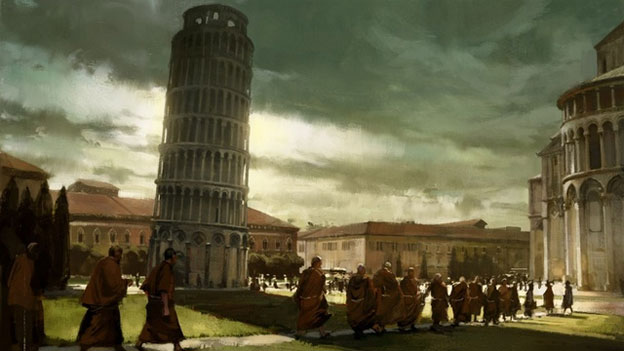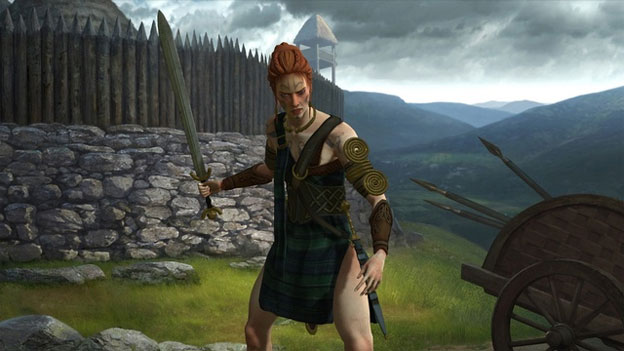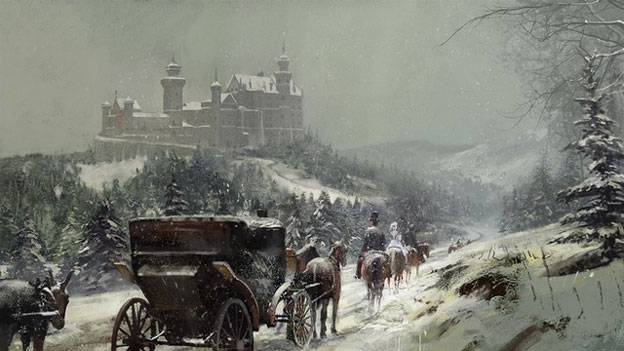My Name Is Ozymandias
Sid Meier’s Civilization series is one of the few games left carrying the torch for the turn-based strategy genre. With genre offerings being so thin, it’s natural that fans have high hopes for every release in the series. Civilization V, which released in the fall of 2010, made a number of changes to the Civ formula, most notably a change from a grid system to hexes. The game also removed some features that had been seen in previous games, which naturally caused complaints and requests from the fans.
Gods & Kings is the first full expansion for Civilization V, which until now has only seen small DLC updates that added new civilizations and scenarios. This expansion adds a great deal more to the game, changing a number of its underlying mechanics. Most of these changes are in response to player feedback that asked for more strategic options in the game.

The first major change that can be seen in Gods & Kings is the re-addition of religion to the world of Civilization. Unlike Civilization IV, which used religion in its diplomacy system, religion in Civilization V is its own separate system that offers various benefits to a player’s society. Civilizations will amass faith as they grow, prosper, and make new discoveries. When a Civilization’s faith is high enough, the player will have the option to build a Pantheon of the Gods.
The selection of available gods will depend on the location of the Pantheon, with a forest pantheon allowing for hunting-related bonuses and a seaside pantheon likely giving bonuses to things like ships and navigation. Nearby cities will convert to belief in the Pantheon, earning even more faith points. These points can then be used to buy a Great Prophet, who can help the player officially found a historical or fictional religion.

Once the religion has been founded, it can be spread peacefully through the use of missionaries or (later on) more violently through the use of rival religion-stomping inquisitors. Players will choose a founder belief that gives a custom boost to a civilization as its religion spreads. They’ll also choose a follower belief that gives benefits to any city that follows the player’s religion. It’s certainly a significant new system that is said to be strongest in the early and mid-game.
Sneaky types will appreciate a major expansion in Civilization V’s espionage system. Players will be able to hire one spy per era starting with the Renaissance, plus an extra spy for founding their particular civ’s version of the CIA. Spies will be controlled using menus rather than being units on the map, ensuring that the fragile little buggers won’t become the unfortunate victims of wayward barbarian hordes. Using the menu system, each spy can be placed in foreign cities and will be able to feed the player information about that rival civilization.
Once installed, spies can be ordered to do all sorts of sneaky stuff, and successful missions will help them level up. They can steal technology, influence elections, or inspire coups. They can also open up new diplomatic options for the player. Of course, if a spy isn’t sneaky enough, it can be caught by the opposing civilization, which will execute the spy and develop rather hostile feelings towards the player’s civilization.

Combat in Gods & Kings is being made more strategic, using a 100-point system for units instead of an 8-point system. This should encourage players to use more complex combat strategies, although it will also have the effect of slowing down battles quite a bit. Ships have been given the ability to engage in close-range combat, allowing ships to board each other and capture coastal cities.
As expected, there will be a raft of new civilizations, units, and other new geegaws in Gods & Kings. Nine new civilizations and attendant leaders will arrive, all different from the ones that can currently be bought as DLC. These include fan favorites such as the Netherlands, the Mayans, and the Celts. Players will also find new technologies, units, buildings, and Wonders. There are even two new kinds of city-states, Mercantile and Religious, which are supposed to make diplomatic victory more challenging to pull off. Finally, Gods & Kings provides several new scenarios to play. The medieval period and the fall of Rome will please history buffs, while the third scenario has a steampunk setting.
With all of these changes and likely more to be revealed, it’s obvious why Gods & Kings took so long to be produced, particularly with the advanced graphics that the game sports. It sounds like Civilization fans will be losing even more days to the dreaded “one more turn” syndrome, and veteran players should especially appreciate the increased depth and complexity that the expansion provides.
Game Features:
